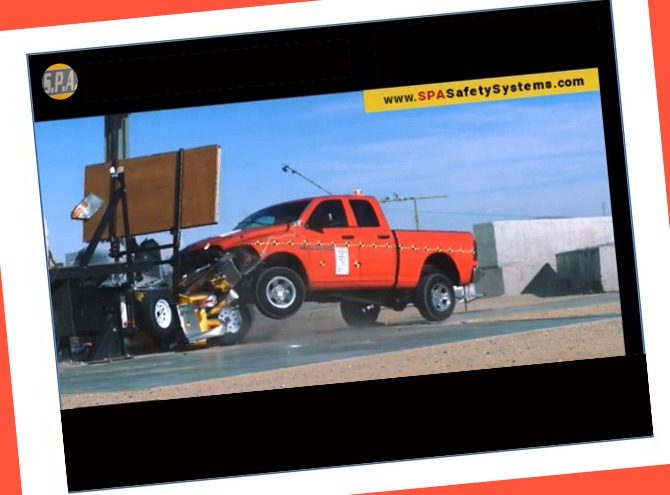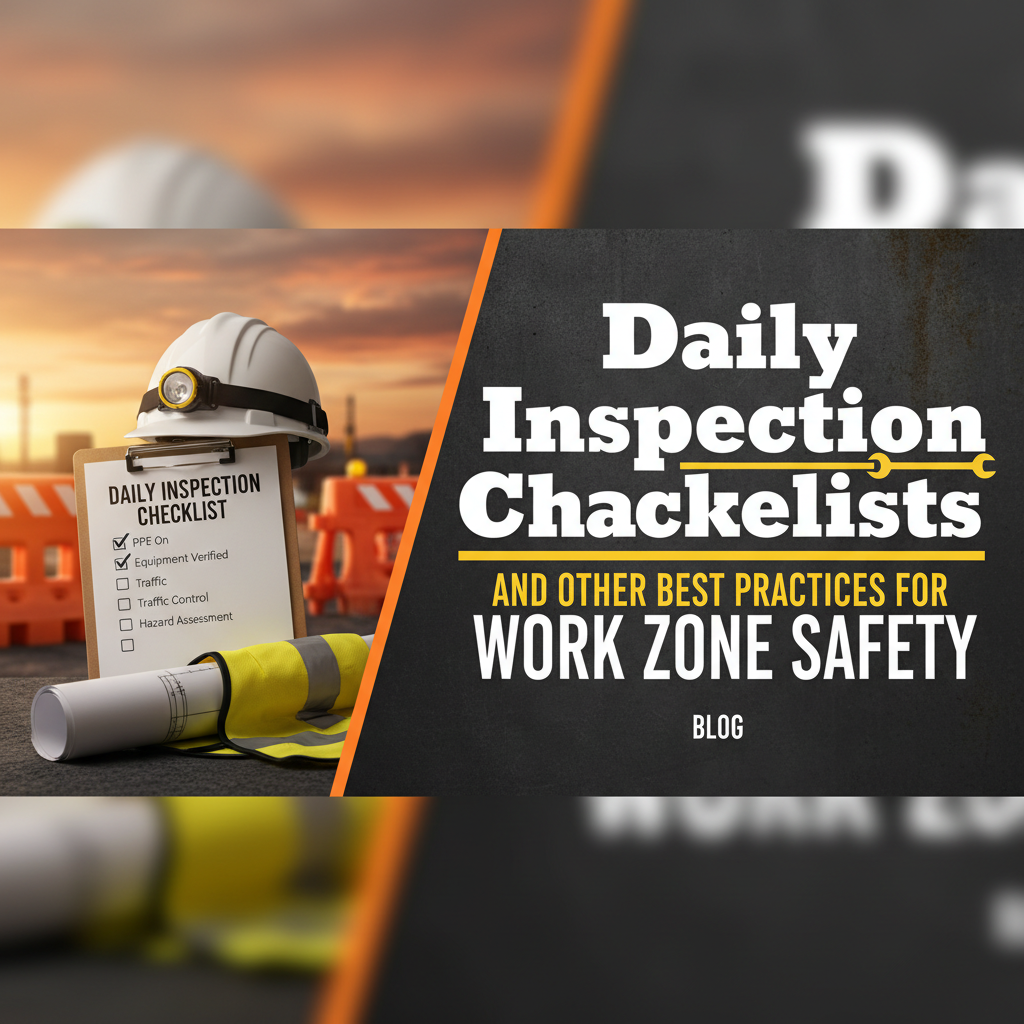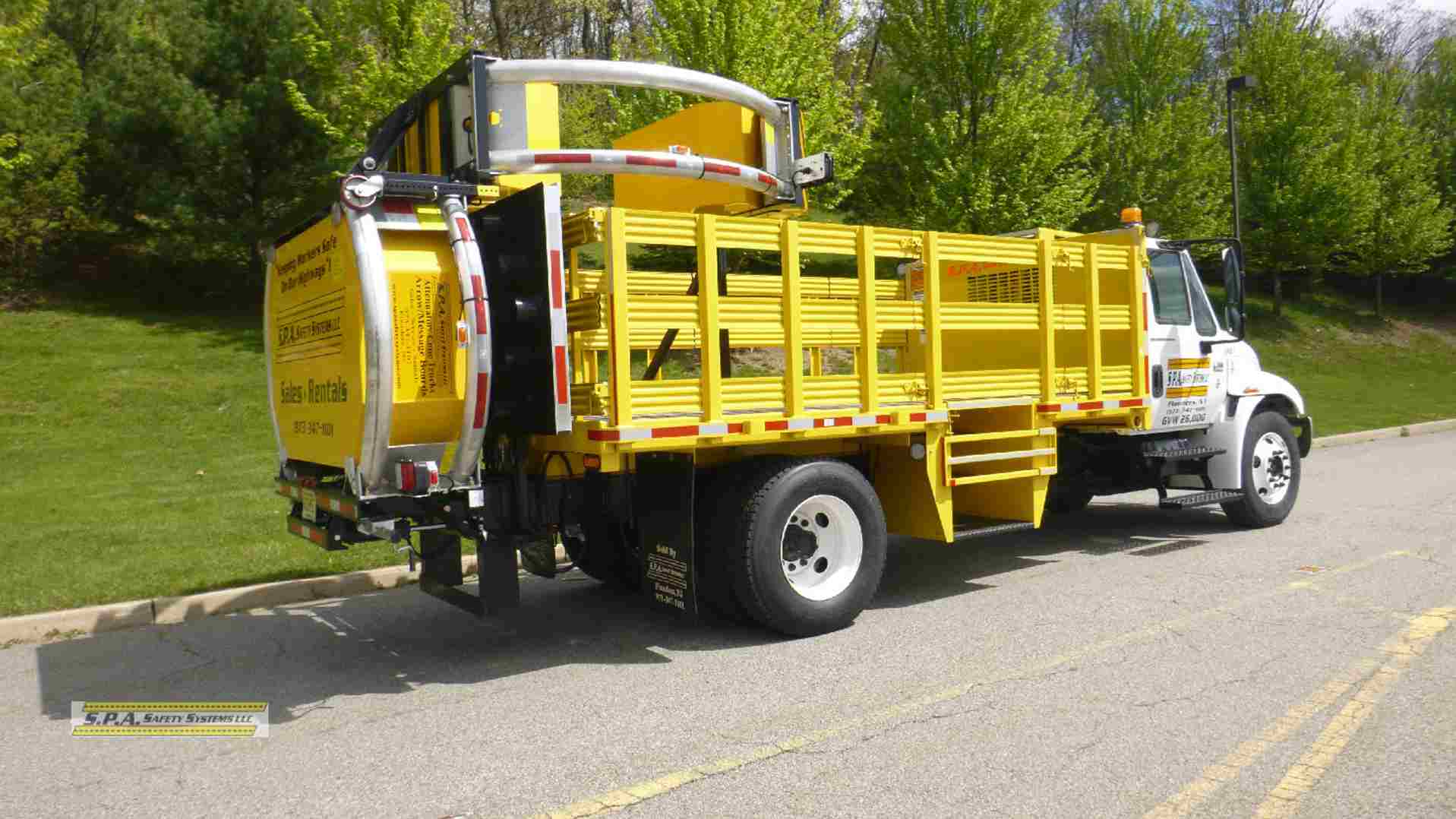Introduction: The High Stakes of Work Zone Safety
Picture this:
A highway work zone at dusk. Traffic is heavy, visibility is dropping, and your crew is wrapping up for the day. Suddenly, a distracted driver swerves past the first warning signs and barrels straight toward your team. But instead of a devastating impact, the car crashes into a crash attenuator truck at the rear—its energy-absorbing structure crumpling to protect everyone ahead. The driver walks away, and your crew is shaken but safe.
These “near-miss” stories aren’t rare. According to FHWA, more than 800 people lose their lives in work zone crashes each year in the U.S.—and thousands more are injured. The difference between a tragedy and a story of survival often comes down to one thing: the right safety equipment. That’s where MASH-compliant crash trucks step in.
What Is MASH Compliance?
When you see “MASH compliant” on a crash truck, it means the truck meets the strictest standards for roadside safety equipment in the U.S.
MASH stands for the Manual for Assessing Safety Hardware. Developed by AASHTO and adopted by the FHWA, MASH sets the benchmark for how roadside safety devices—like crash attenuators—must perform in real-world, high-speed collisions.
Key Elements of MASH Compliance
- Rigorous Crash Testing: MASH guidelines require crash attenuators to withstand impacts from cars and trucks at various speeds and angles.
- Test Level 3 (TL-3): The most common standard for highway work zones, TL-3 indicates that the device has been tested with vehicles weighing up to 2,200 kg (approximately 4,850 lbs) at a speed of 62 mph.
- DOT Certification: Most state DOTs, including the New Jersey DOT, now require MASH-compliant (often TL-3) attenuator trucks for highway work.
MASH compliance isn’t just a checkbox—it’s a guarantee that the equipment has been proven to save lives under the toughest conditions. **
Crash Truck Features That Save Lives
MASH-compliant crash trucks—sometimes called DOT-certified attenuator trucks or highway safety trucks—are engineered for maximum protection. Here’s what sets them apart:
1. Energy-Absorbing Attenuators
The most critical feature is the rear-mounted attenuator. In a crash, it absorbs the force of impact, crumpling in a controlled way to protect both the errant driver and everyone working ahead of the truck.
2. High-Visibility Lighting
LED Arrow Boards: Direct traffic clearly around the work zone.
Strobe and Warning Lights: Ensure the truck is visible day and night, even in poor weather conditions.
3. Operator & Crew Safety Features
Backup cameras and alarms to prevent accidental movement.
Automatic brake locks to keep the truck stationary during operations.
Bright reflective markings for 360° visibility.
4. Rugged, Reliable Chassis
Heavy-duty platforms must build crash trucks to ensure stability and withstand repeated impacts if necessary.
5. Compliance Documentation
Every MASH-compliant truck should come with clear documentation proving it meets MASH TL-3 or higher standards. This is your proof of compliance for DOT inspectors.
Real Statistics: The Impact of MASH Trucks
How much difference does MASH compliance make? Consider the numbers:
- Work zone fatalities decreased by 45% when MASH-compliant attenuator trucks were deployed, per FHWA impact reviews.
- OSHA reports that struck-by incidents are a leading cause of death for highway workers—crash attenuator trucks are proven to reduce these incidents significantly.
- NJ DOT requirements: All crash trucks used on state highways must be MASH TL-3 certified—a standard now echoed nationwide.
And beyond the data are the stories:
“We had a TMA take a direct hit at 1 AM. The driver walked away. My crew didn’t even have a scratch. That truck did its job.”
— Roadway Supervisor, New Jersey contractor
How to Verify MASH Compliance in Rental or Purchase
Choosing a MASH-compliant truck isn’t just smart—it’s required. Here’s how to make sure your equipment is up to standard:
1. Request Certification Documents
Every compliant truck should have a MASH TL-3 (or higher) certificate. Don’t settle for “DOT approved” unless you see the paperwork.
2. Inspect the Attenuator
Check for manufacturer labels, serial numbers, and visible signs of proper maintenance. The attenuator should match the specs listed in its MASH documentation.
3. Ask Your Rental or Sales Rep
Reputable companies, such as SPA Safety Systems, will provide certification, inspection logs, and guidance on the latest compliance requirements.
4. Review DOT Guidelines
Compare your truck’s documentation with New Jersey Department of Transportation (NJ DOT) regulations to ensure it meets all state and federal mandates.
Conclusion: Investing in Safety Pays Off
Every contractor and municipality faces tough choices on budgets and equipment. But when it comes to work zone protection equipment, there’s no room for compromise.
MASH-compliant crash trucks aren’t just about passing inspections—they’re about getting everyone home alive after every shift.
Your crew’s protection, your project’s compliance, and your secure reputation provide priceless peace of mind.
Make every work zone a safe zone. Choose MASH-compliant, DOT-certified crash trucks—because every life is worth protecting.
FAQs: MASH-Compliant Crash Trucks
1. What is a MASH TL-3 truck?
A MASH TL-3 truck features an attenuator tested to withstand high-speed impacts (up to 62 mph) under the MASH Test Level 3 standard—the most common requirement for highway work zones.
2. Are all crash attenuator trucks MASH compliant?
Only trucks with attenuators tested and certified under MASH standards (usually TL-3 or higher) comply legally with most DOT projects.
3. How do I confirm my rental truck is MASH-certified?
Ask for the MASH TL-3 compliance certificate and inspect the attenuator’s manufacturer label. Reputable providers will have these ready.
4. Can I use a non-compliant truck on a public project?
No. Using non-certified equipment puts you at risk for fines, insurance issues, and project shutdowns—not to mention increased danger for your crew.
5. What other features should a compliant crash truck include?
Look for LED arrow boards, strobe lights, backup alarms, reflective markings, and a well-maintained heavy-duty chassis—all essential for maximum safety and compliance.
Need help finding or verifying a MASH-compliant crash truck? Contact SPA Safety Systems for expert guidance, certified rentals, and total peace of mind.








